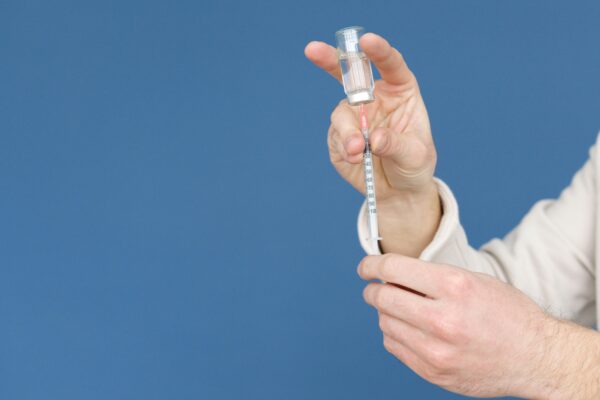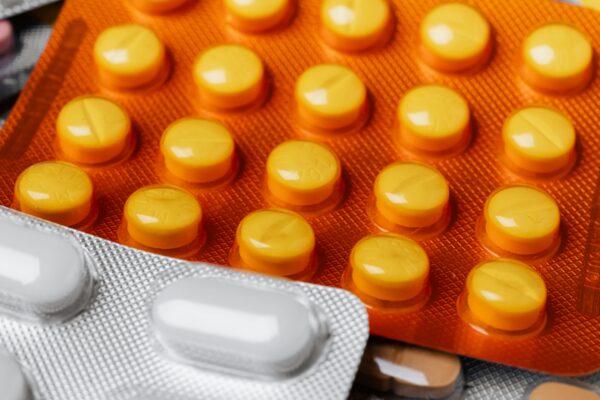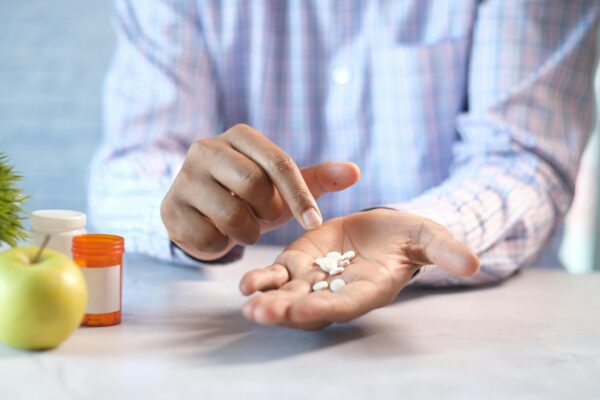As men age, sexual health becomes an important focus. It’s no secret that the body goes through changes, particularly after the age of 50. Understanding these changes and how to manage them can ensure that sexual health remains vibrant and fulfilling well into later years. This guide covers everything you need to know to maintain sexual well-being after 50, including practical solutions, medical insights, and lifestyle adjustments.
- Understanding Male Sexual Health After 50
- The Impact of Testosterone Decline
- Dealing With Erectile Dysfunction (ED)
- Healthy Diet and Exercise: Key to Longevity and Sexual Health
- Mental Health and Its Role in Sexual Well-Being
- Prostate Health and Its Impact on Sexual Function
- Natural Supplements and Lifestyle Adjustments
- Communicating With Your Partner
- Medical Interventions and Treatments
- Conclusion
- FAQs: Male Sexual Health After 50: Everything You Need to Know for Optimal Well-Being
- Question: How does aging affect male sexual health?
- Question: What are common sexual health issues for men over 50?
- Question: Can medications affect sexual function in older men?
- Question: How important is overall health for sexual well-being after 50?
- Question: Are there effective treatments for erectile dysfunction in older men?
- Question: How can I maintain intimacy in my relationship as I age?
- Question: How often should men over 50 have prostate exams?
Understanding Male Sexual Health After 50
Male sexual health after 50 involves complex interactions between hormones, physical health, mental well-being, and emotional connections. Aging brings about hormonal shifts, with testosterone levels being the most notable change. Testosterone, the hormone responsible for sex drive, energy, and mood regulation, naturally declines with age, but this doesn’t mean that sexual activity must diminish.
The first step in preserving sexual vitality is to acknowledge the physical changes that come with age and address them head-on with the right strategies.
| Health Statistic | Age Range | Data | Sources |
|---|---|---|---|
| Testosterone Decline Rate | 30-50 years | Testosterone levels decline by approximately 1% per year. | American Urological Association |
| Prevalence of Erectile Dysfunction (ED) | 50+ years | 40% of men over 50 experience some form of ED. | National Institutes of Health (NIH) |
| Heart Disease & ED Connection | 50+ years | Men with heart disease are 2x more likely to develop ED. | American Heart Association |
| Prostate Enlargement (BPH) Incidence | 50-60 years | 50% of men aged 50-60 experience benign prostatic hyperplasia. | Mayo Clinic |
| Prostate Cancer Risk | 50+ years | 1 in 8 men will be diagnosed with prostate cancer in their lifetime. | Prostate Cancer Foundation |
| Impact of Obesity on ED | All ages | Obese men are 50% more likely to develop erectile dysfunction. | Cleveland Clinic |
| Success Rate of PDE5 Inhibitors (Viagra) | 50+ years | 70% success rate in treating erectile dysfunction. | Harvard Medical School |
| Mental Health & Sexual Function | 50+ years | 20% of men over 50 report depression impacting sexual health. | National Mental Health Association |
| Physical Activity & ED Risk Reduction | 50+ years | Regular exercise can reduce ED risk by 30%. | European Urology Association |
The Impact of Testosterone Decline
Testosterone is vital to maintaining libido and erectile function. After the age of 30, testosterone levels drop by about 1% annually, and by the time men reach 50, the effects may become noticeable. This decline can lead to:
- Decreased sex drive
- Erectile dysfunction
- Mood swings
- Fatigue
- Reduced muscle mass
However, men are not powerless in the face of these changes. Testosterone replacement therapy (TRT) is one option, but there are also natural ways to support healthy testosterone levels, including diet, exercise, and lifestyle habits.
Dealing With Erectile Dysfunction (ED)
Erectile dysfunction becomes more common as men age. By age 50, it affects about 40% of men. ED can have both physical and psychological causes, including:
- Heart disease
- Diabetes
- High blood pressure
- Anxiety and depression
Addressing the root cause is essential. Lifestyle changes, such as losing weight, quitting smoking, and managing stress, are often effective in combating ED. In some cases, medications like PDE5 inhibitors (e.g., Viagra or Cialis) may be prescribed to help men achieve and maintain erections.
Healthy Diet and Exercise: Key to Longevity and Sexual Health
Maintaining a balanced diet and regular physical activity is crucial for sexual health. A Mediterranean diet, rich in fruits, vegetables, whole grains, and healthy fats, has been shown to boost overall health and improve blood circulation, which directly affects erectile function.
Exercise, especially strength training and cardio, helps increase testosterone levels and improves blood flow, both of which are essential for a healthy sex life. Regular exercise can also help reduce the risk of conditions like heart disease and diabetes, which are linked to ED.
Mental Health and Its Role in Sexual Well-Being
Mental health is an often-overlooked aspect of sexual health, especially as men age. Depression, anxiety, and stress can all affect sexual performance and libido. Men over 50 may feel the pressures of aging or be concerned about their ability to perform, which can lead to a cycle of performance anxiety and reduced sexual desire.
Addressing mental health issues through therapy, meditation, or relaxation techniques can alleviate some of the psychological barriers to a healthy sex life. Open communication with partners is also crucial for maintaining intimacy and connection.
Prostate Health and Its Impact on Sexual Function
The prostate gland plays a significant role in male sexual health. As men age, the risk of benign prostatic hyperplasia (BPH) and prostate cancer increases. Both conditions can affect sexual function, causing symptoms such as:
- Frequent urination
- Difficulty maintaining erections
- Pain during ejaculation
Regular screenings and check-ups are critical for early detection and prevention. Treatments for prostate issues can range from medication to surgery, depending on the severity of the condition.
Natural Supplements and Lifestyle Adjustments
Many men turn to natural supplements to support sexual health after 50. Some of the most commonly used supplements include:
- L-arginine, an amino acid that helps improve blood flow.
- Maca root, known for boosting libido and energy.
- Zinc, crucial for testosterone production.
- Ginseng, which can help combat fatigue and support erectile function.
Additionally, maintaining a healthy weight, reducing alcohol consumption, and quitting smoking are all essential steps in maintaining sexual health and vitality.
Communicating With Your Partner
Open and honest communication with your partner is essential for a fulfilling sexual relationship after 50. Many couples experience changes in their sexual dynamic as they age, but discussing these changes openly can lead to deeper intimacy and understanding.
- Be willing to explore new ways of connecting.
- Discuss any concerns about performance or health openly.
- Explore non-sexual intimacy like touching, kissing, and cuddling to maintain closeness.
Medical Interventions and Treatments
For men who experience significant challenges in maintaining sexual health, medical interventions may be necessary. Common treatments for sexual dysfunction include:
- Hormone replacement therapy (HRT) for men with significantly low testosterone levels.
- PDE5 inhibitors like Viagra, Levitra, or Cialis, which enhance blood flow to the penis.
- Penile implants or vacuum erection devices for severe cases of ED.
- Psychotherapy for men dealing with psychological barriers to sexual health.
Working closely with a healthcare provider to find the right solution is key to regaining and maintaining sexual well-being.
Conclusion
Male sexual health after 50 doesn’t have to decline. With a comprehensive approach that includes healthy lifestyle choices, medical support, mental well-being, and open communication, men can maintain a fulfilling sex life well into their later years. Addressing issues early and taking proactive steps to improve sexual health can lead to greater confidence and improved overall well-being.
FAQs: Male Sexual Health After 50: Everything You Need to Know for Optimal Well-Being
Question: How does aging affect male sexual health?
Aging can affect male sexual health in various ways, including decreased testosterone levels, slower arousal, less frequent erections, and changes in ejaculation. However, these changes are normal and don’t necessarily mean the end of a satisfying sex life.
Question: What are common sexual health issues for men over 50?
Common issues include erectile dysfunction, low libido, enlarged prostate, and decreased sensitivity. Many of these can be addressed through lifestyle changes, medical treatments, or a combination of both.
Question: Can medications affect sexual function in older men?
Yes, certain medications, particularly those for blood pressure, depression, and prostate problems, can affect sexual function. If you’re experiencing issues, consult your doctor about possible alternatives or adjustments to your medication regimen.
Question: How important is overall health for sexual well-being after 50?
Overall health is crucial for sexual well-being at any age, but especially after 50. Regular exercise, a balanced diet, stress management, and avoiding smoking and excessive alcohol consumption can significantly improve sexual health and function.
Question: Are there effective treatments for erectile dysfunction in older men?
Yes, there are several effective treatments for erectile dysfunction, including oral medications, injections, vacuum devices, and in some cases, surgical options. It’s important to consult a healthcare professional to determine the best treatment based on your individual health status and needs.
Question: How can I maintain intimacy in my relationship as I age?
Maintaining intimacy involves open communication with your partner, exploring new forms of physical and emotional connection, and being willing to adapt to changes. Remember that intimacy isn’t solely about sexual intercourse; it can include touching, kissing, and other forms of closeness.
Question: How often should men over 50 have prostate exams?
The frequency of prostate exams depends on individual risk factors. Generally, men should discuss prostate screening with their doctor starting at age 50, or earlier if they have a family history of prostate cancer. Your doctor can recommend an appropriate screening schedule based on your personal health profile.
The Truth About Testosterone and Aging: What You Need to Know
How to Keep Your Prostate Healthy: Tips Every Man Should Know
Erectile Dysfunction After Prostate Surgery: Comprehensive Guide to Understanding and Managing ED
Testosterone and Digestive Health: Impact on Metabolism and Nutrient Absorption





